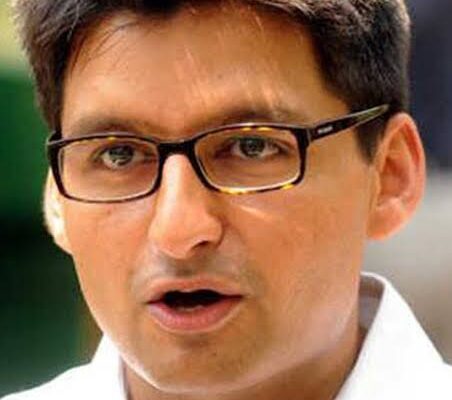NEW DELHI: Congress MP and spokesman Deepender Singh Hooda on Thursday accused the Modi government of trying to bring the anti-farmer farm laws via the backdoor and
the decision of the Samyukta Kisan Morcha (SKM) to launch a series of nationwide protests against the refusal of the BJP government to implement their reasonable demands.
He told a Press conference here that the Congress stands with the farmers protesting at the government going back on its written promises to set up a committee on Minimum Support Prices (MSP), remove false cases against farmers and withdraw the Electricity Amendment bill.
Hooda said the SKM is also protesting the anti-youth and anti-farmer Agnipath scheme and the brazen continuation of Ajay Mishra Teni in the Union Cabinet ten months after the Lakhimpur Kheri massacre.
The BJP government’s irrational agricultural trade policy is also endangering Indian food security, he said, noting that even the RSS-affiliated Bharatiya Kisan Sangh criticised the government’s erratic import and export announcements that only hurt farmers and perversely increase the country’s dependence on imports.
The government has slashed wheat allocations for ten states, including BJP-ruled Gujarat and Uttar Pradesh that were among the biggest beneficiaries of the UPA’s National Food Security Act. These states are paying the price for Prime Minister Narendra Modi’s usual quest for personal glory at the expense of the Indian citizens, Hooda said.
As with vaccine supplies during the second COVID wave, Modi prematurely announced that “at a time when the world is facing a shortage of wheat, the farmers of India have stepped forward to feed the world” and encouraged wheat exports of up to 10 million tonnes. Hooda said the PM was forced to make a u-turn less than two weeks later on 13 May 2022 when India banned wheat exports, but the damage was done. Wheat output has fallen and now wheat-consuming citizens in Gujarat, Uttar Pradesh and elsewhere will pay the price.
He said the government’s confused approach is also evident with paddy procurement. After many years of urging Indian states to reduce the area under paddy, Food and Consumer Affairs Minister Piyush Goyal is now desperately urging states to increase paddy production.
The Congress MP from Haryana also referred to two elements of assault on the farmers and consumers:
• The imposition of GST on unbranded, prepackaged puffed rice, wheat flour, curd and buttermilk will raise prices in a time of rising inflation. Increases in GST rates on agricultural warehousing, and on dairy, poultry and horticulture machinery will also make food products more expensive. This is a fiscal assault on farmers and consumers at a time of weak demand and stressed supply.
• Farmers are bring burdened both by a shortage of fertilisers as well as climbing fertiliser prices, which has also been affecting crop sowing. DAP prices have gone from ₹1,200 to ₹1,350 per 50 kg bag wile NPKS prices have gone from ₹1,290 to ₹1,400. This is costing the struggling farmers an additional ₹3,740 crore.
###



